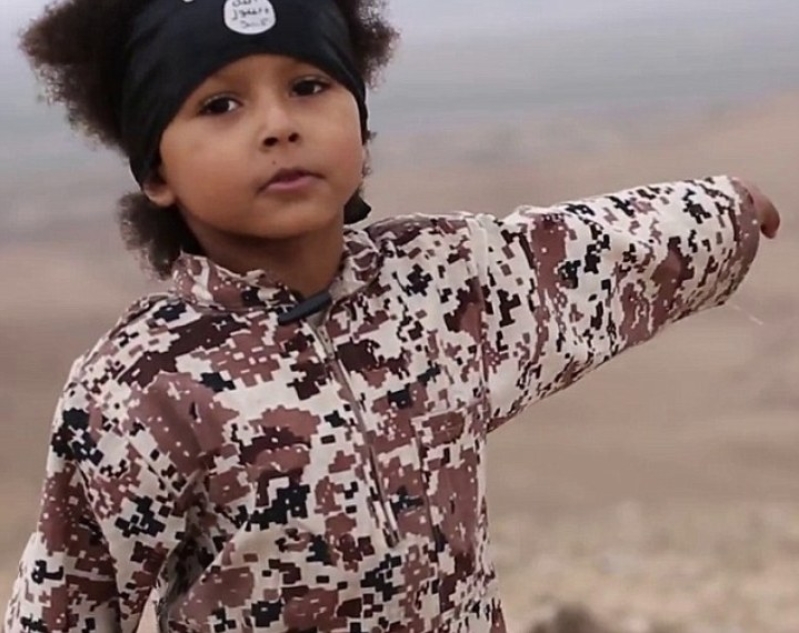
A Yazidi boy who escaped from a military training camp run by the Islamic State has shared how the jihadi organization is brainwashing and training young boys, forcing them to convert to Islam and training them to become killing machines.
Achmed, now sixteen, was captured along with his family by ISIS back in 2014 after the group stormed into Sinjar province, a majority Yazidi region in northern Iraq. The teen recently shared with Yahoo News how the militants beat him and his younger brother before separating them from their parents.
"They brought the buses and then they forced us to ride the buses, and we told them we were too young. They told us, 'No, you have to go.' Some of the kids refused and they beat them, and they told us, 'We will kill you if you [don't go].'"
The ISIS fighters took Achmed and his brother to a training camp in Mosul, Iraq, where they were trained to become"cubs of the caliphate," as the group calls its young warriors. At the camp, Achmed did as the militants instructed him, fearing for his life. His daily routine included daily prayers, physical training and weapons practice.
"They forced us to memorize verses from the Quran, and whoever didn't, got beaten," he said. "Because I was scared, I memorized them...They would come and wake us up at 4 a.m., to pray the Islamic prayers. And then after that they would feed us breakfast - a piece of bread, cheese, maybe an egg. They trained us to use the M16, the AK47 and a pistol. They also showed us videos on how to behead people."
Achmed said he never killed anyone, but while watching the videos, he said, "I was so scared, and I would often try to imagine myself being forced to do this, and I would tell myself, 'I won't do it.'"
After enduring several months of brutal training, Achmed and his brother persuaded their trainers to let them leave for a weekend to see their aunt in a town west of Mosul. On that trip, they decided to escape, and waited until after sunset and headed west, traveling at night. Nine days later, the brothers met up with their uncle, and eventually made their way to a camp for internally displaced persons, where they joined their mother and sister.
However, Achmed's nightmare is far from over: "They [ISIS] are always in front of me when I sleep," the teen revealed, "so sometimes I am afraid to fall asleep. Everything was bad. It was all so bad."
Over the past two years, ISIS has kidnapped thousands of children and taken them to various training camps across Iraq and Syria, according to the Syrian Observatory for Human Rights. The group has released a number of propaganda videos showing children as young as six years old declaring their ambition to become "martyrs" for Islam and participating in violent training exercises.
In February, a study published in the CTC Sentinel found that ISIS is increasingly employing children to carry out acts of terrorism, as there are currently 1,500 male children serving ISIS in Iraq and Syria.
The cases of 89 children eulogized by ISIS in the past 13 months were documented in the study, which found that most of them died in violent ways: 39% died detonating a vehicle born IED device and 33% were killed as foot soldiers. Some 4% killed themselves while committing mass casualty attacks against civilians, and 6% died as propagandists embedded with brigades.
The study also found that child soldiers are seemingly treated no differently than adult soldiers by the terrorist group.
In August, John Horrigan, co-author of a forthcoming book "Small Arms: Children & Terrorism," told NPR that children who refuse to participate in jihadist activity are often executed by the terrorist group.
"There are numerous accounts of children who failed at training or who miss their parents too much and decided that, you know, this really wasn't for them," he said. "In some cases, in many cases in fact, those children were severely beaten and, in some cases, even executed. This is really all about providing points of no return. The children at a point here really don't have a choice. And it is fundamentally - this entire activity is based on coercion."






